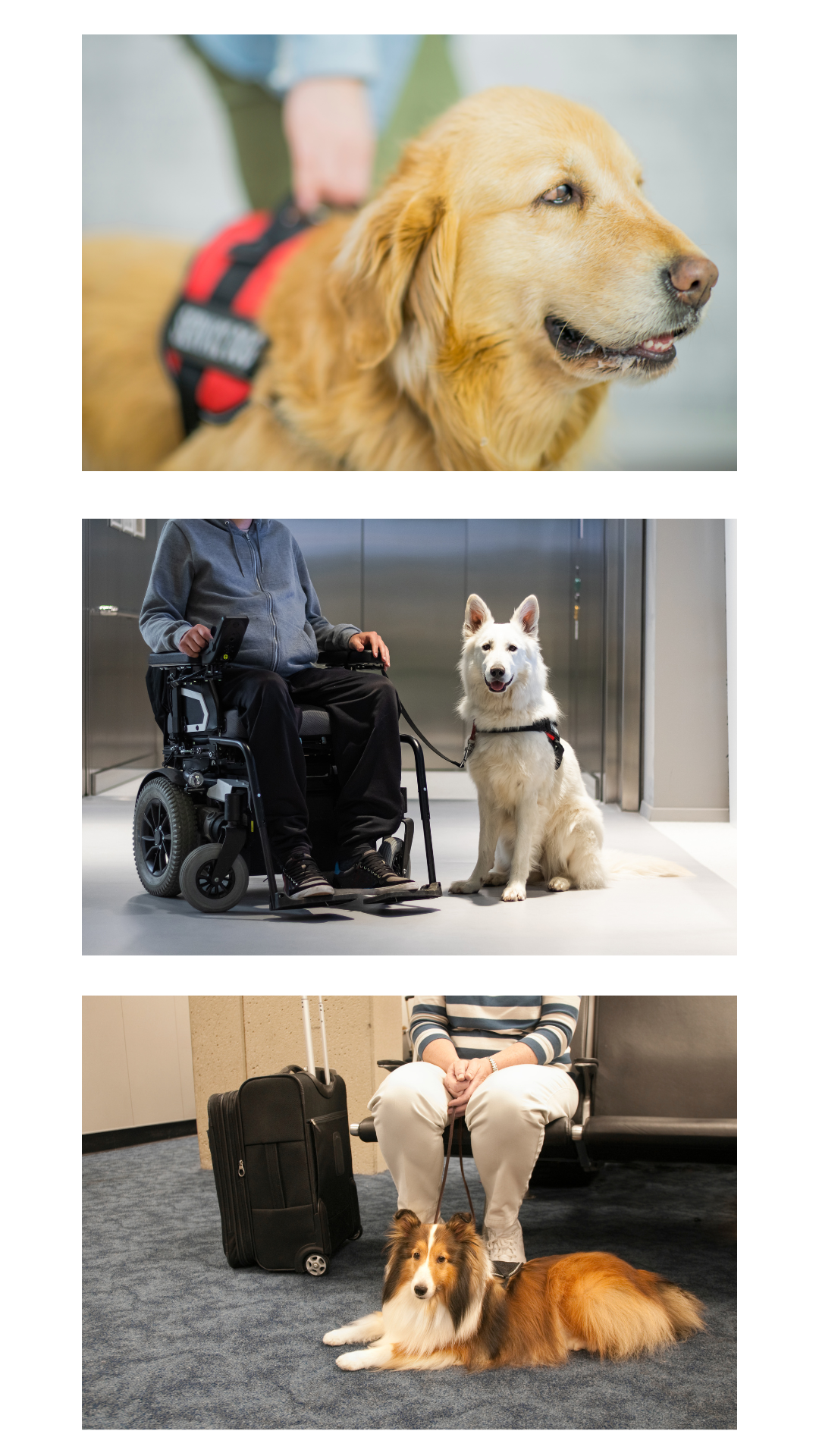About us
Welcome to Lean on Me Canine Assistance (LMCA), a Service Dog Education and Awareness Organization! At LMCA, we are dedicated to providing valuable information and support to individuals and communities to better understand the incredible world of service dogs. Our mission is to bridge the gap between service dog users and the general public, promoting awareness, acceptance, and appreciation for the vital role these four-legged companions play in the lives of those with disabilities and special needs.
Service dogs are not just pets; they are highly trained, skilled, and compassionate partners that offer invaluable assistance to people with a wide range of disabilities, including physical, neurological, and emotional conditions. These remarkable canines are trained to perform specific tasks that empower their handlers to lead more independent and fulfilling lives.
Through our comprehensive resources and educational initiatives, we aim to dispel misconceptions, clarify legal rights and responsibilities, and break down barriers that often arise due to misunderstandings surrounding service dogs. We believe that increased knowledge about service dogs can foster a more inclusive and accommodating society, allowing these teams to navigate the world with dignity and respect.
Whether you are a service dog user, a business owner, an educator, or simply a curious individual, LMCA is here to provide accurate information and share heartwarming stories of how service dogs transform lives. Join us on our journey to create a more compassionate and educated world for service dog teams and help build a future where everyone can experience the incredible bond between humans and their canine partners. Together, we can make a positive difference and cultivate a society that embraces the value of service dogs in enhancing the quality of life for those in need.
Types of Service Dogs
-
Guide Dogs:
Guide dogs assist individuals who are blind or visually impaired by navigating obstacles and helping them safely travel from one location to another.
-
Hearing Dogs:
These dogs are trained to assist individuals who are deaf or hard of hearing by alerting them to important sounds such as doorbells, alarms, or someone calling their name.
-
Mobility Assistance Dogs:
These dogs aid individuals with mobility impairments by helping them with tasks such as opening doors, retrieving items, or providing stability and balance support.
-
Medical Alert Dogs:
These dogs are trained to detect changes in a person's body odor or behavior associated with certain medical conditions, such as seizures, diabetes, or allergies. They can then alert their handlers or others to take appropriate action.
-
Psychiatric Service Dogs:
Trained to assist individuals with mental health conditions, psychiatric service dogs can provide support by interrupting destructive behaviors, providing comfort during anxiety or panic attacks, and creating personal space in crowded environments.
-
Autism Assistance Dogs:
Specifically trained to assist individuals with autism spectrum disorders, these dogs can provide calming effects, reduce stress, and offer companionship to help with social interactions.
-
Seizure Response Dogs:
These dogs are trained to respond during or after a seizure. They may provide physical support, retrieve medications, or seek help from others.
-
Allergy Detection Dogs:
Trained to detect specific allergens, these dogs can help individuals with severe allergies by alerting them to potential dangers or even retrieving medication.
-
Diabetic Alert Dogs:
These dogs are trained to detect changes in blood sugar levels and alert individuals with diabetes, allowing them to take necessary actions to manage their condition.
-
PTSD (Post-Traumatic Stress Disorder) Dogs:
Trained to assist individuals with PTSD, these dogs can provide emotional support, interrupt anxiety-inducing behaviors, and create a sense of security.

These are only some of the disabilities which service dogs serve to, but there are more disabilities which might be more specific for each user.
It's important to note that service dogs are protected by laws in many countries, allowing them to accompany their handlers in public places and ensuring equal access. Each service dog is trained based on the specific needs of its handler, and the tasks they perform contribute to enhancing the individual's independence and quality of life.
How does Lean on me Canine Assistance work?
Each user has a different condition and has different needs, remember that finding the right service dog trainer may take time and research, but investing in proper training will lay the foundation for a successful and fulfilling partnership with your service dog.
At Lean on me Canine Assistance we provide you with the information to start the necessary process and complete the necessary training for your requirements.
Contact us:
asistenciacaninalmca@gmail.com
